Lesbian Visibility Day: Sports and thoughts
Six women working in sports media share their takes on the awareness day, role models, and the advice they would give their younger selves
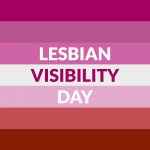
April 26 is Lesbian Visibility Day, with 2019 being the 12th year in which this particular LGBT+ awareness day has been celebrated.
This year, we’ve asked three questions to each of six women working in a variety of roles across the wide world of sports media, and connected industries.
They’ve shared with us their thoughts on Lesbian Visibility Day itself; the role models who inspired them, and encouraged them to be authentic; and also the words of advice they would pass on to their younger selves, in order to help them through more testing times.
Here are our contributors…
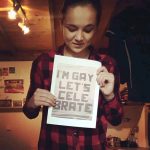
Emma Coolen has been playing for KSK Heist in the Belgian top-flight this season, and will be one of FIFA’s Official Team Reporters at the World Cup in France this summer, where she will follow her home nation, the Netherlands. Follow Emma on Twitter at @emma_coolen and @FIFAWWC_NED, and on Instagram at @emma_coolen.

Beth Fisher is a broadcast journalist working for BBC Sport Wales. Previously, she played international hockey for Wales. She can also be heard regularly on the Balls! podcast. Follow Beth on Twitter at @BethFisher04, and check out her podcast (@BallsPod) on Soundcloud or iTunes.

Courtney Hill is a multimedia journalism student. From writing to podcasts to videos, she covers women’s football extensively and hopes to one day become a women’s football journalist. She lives by the notion that we should always be supporting the women around us and lifting each other up. Follow Courtney on Twitter at @cjhsport.
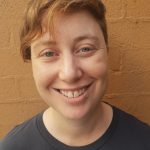
Dr Kate O’Halloran is a journalist and academic. She was recently short-listed for a Quill award for coverage of women’s sport and writes for the ABC and Crikey, as well as regularly appearing on ABC’s News Breakfast. She has a PhD in Gender Studies and is passionate about gender equity, LGBTI inclusion and other social justice issues in sport. Follow Kate on Twitter at @Kate_ohalloran.
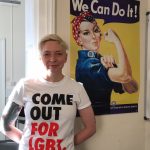
Georgina Turner is a lecturer in media, and former sports writer (Guardian, Observer, Sports Illustrated). Her work focuses on gender, sexuality, and representation in the media. Follow Georgina on Twitter at @intweed.
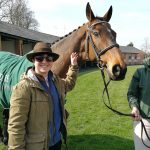
Zoë Vicarage works for Thoroughbred Owner Breeder as Head of Digital, having previously spent three years on the bloodstock desk at the Racing Post. She graduated in Sports Journalism at the University of Sunderland, and is also a keen road cyclist. Follow Zoë on Twitter at @ZoeVicarage.
Emma, Beth, Courtney, Kate, Georgina and Zoë were invited to give answers as long or short as they liked.
Why is Lesbian Visibility Day important to you?
Emma: I feel like LVD gives us all an opportunity to discuss the current state of LGBTQ+ acceptance around the world. But of course, it also provides us with a chance to celebrate who we are, and show young girls who might be struggling that it not only gets better, but that you can be proud of yourself, no matter what.
Beth: Let’s face it, growing up is tough – secondary school, periods, bunsen burners… you get the gist. Throw in realising that you’re a ‘lezza’ and having a haircut that was meant to look like Gwyneth Paltrow’s character in ‘Sliding Doors’ but ended up looking like Phil Neville, and then you’re in for a real treat. As I’ve said many times before, I just didn’t see many lesbians growing up. I mean, I heard the word ‘lesbian’, always said in hushed tones like David Attenborough describing a rare Pygmy three-toed sloth climbing through the Panama bush (no pun intended). And just like this creature, being associated with ‘being a lesbian’ wasn’t exactly what you wanted to aspire to as a teenage girl. But isn’t that just the saddest thing you’ve ever heard, because you know what… us lesbians are actually alright! So why is LVD important to me? Well, I want young girls to see and hear every type of lesbian that exists on earth – all shapes, all sizes, all colours, all religions – but let’s just maybe leave out the Phil Neville haircut.
Check out the clip below from Beth’s interview in February with Wales international footballer Jess Fishlock, for BBC Wales Live. Watch the film in full here.
Courtney: It’s a sense of validation – for my sexuality, and the experiences that have made me the person I am today. As someone who struggled with my sexual identity growing up, it’s liberating to be able to comfortably identify as a lesbian and then have a safe space to celebrate that. We can often get caught up in the argument that we don’t need labels when it comes to our sexual identities – but for people such as myself, happy to label my sexuality, it’s important to give ourselves a day to embrace and celebrate that unapologetically.
Kate: So many reasons. I think we still have a long way to go in terms of having visible lesbian role models (particularly those from diverse cultural backgrounds), as well as combating stereotypes about lesbians. At home in Australia, we’re still reeling from an unnecessary, divisive and painful national plebiscite on marriage equality that caused many lesbians to feel unsafe amongst their own family, friends and their communities. Since that time, we continue to be targeted by conservative politicians (as well as some media) alongside others in the LGBTI community, while homophobic and transphobic rhetoric abounds – often without consequence – in workplaces, on social media and sporting fields. On a global scale, while homosexuality is often criminalised, the focus is often on men, whereas sex or love between women is rendered invisible.
Georgina: Though people like to behave as if everything is fine now, it’s still not straightforward to be an out lesbian, and we’re still not well represented in popular culture. Events such as LVD tend to give us more diverse images of lesbians, as well as creating moments at which some women might find themselves able to identify as lesbians for the first time.
Zoë: It’s important to me for many reasons but mostly as a celebration of diversity and showcasing to younger generations that their identity is represented. Many young people might feel that they’re alone through dealing with their sexuality and don’t need to hide who they are. This day helps celebrate our wonderful community, offers us the chance to say thanks to our lesbian role models, and become role models for future generations so they feel part of the community. By being visible myself and proud of who I am, I hope I’m one of those role models for younger generations.
Who are your lesbian role models in sport and sports media?
Emma: There are so many great examples these days of women in sports and sports media that help show the world that being LGBTQ+ is completely normal, and not something that should make you feel ‘different’. All of these women are doing it in their own, personal ways, which I believe is fantastic, because it creates a diverse representation across the board for girls and women to look up to. From Hannah Wilkinson’s incredible story on sexuality on Ali Riley’s podcast ‘Girls With Balls’, to Sherida Spitse sharing life with her wife Jolien and son on her Instagram page (below). Merel van Dongen did a long interview with Dutch newspaper NRC a while ago in which she openly and bravely talked about not only her own love life, but also LGBTQ+ acceptance in football in general, and the challenges in particular men’s football still faces in that area. The fact that she did that during her active playing career really inspired me. She’s not afraid of possible repercussions. She has a story and is not afraid to share it. It’s fearlessness like that I hope will one day be the norm.
Beth: The thing about role models is that you don’t have to be some superstar singer or famous movie star to be one. As you get older, you discover the women in history who have fought a battle for which they never knew what the end result would be – Billie Jean King and Audre Lorde, for example, risking their lives and careers so we could have a better future. But closer to home is where, in my opinion, role models have the biggest impact. It would be unjust of me to pick out particular names but the LGBT Sport Cymru group, for example, do so much community and school work for little or no public reward. They do it because of the one common connection we as LGBT people all have in common – we want to change the future so young people can have a better past.
Here’s a story… I remember vividly the first time I realised that real life lesbians existed. It was 20 years ago. I was around 15 years old, when I found out that the two women in my hockey club were not in fact cousins but in fact… lovers. My ‘victims’ probably have no idea that they were being looked upon on that night and effectively would become my first-ever lesbian role models, for just being themselves. But quite honestly, this simple visibility of two girls holding hands changed my life forever. It opened the metaphorical closet doors to a world where I could truly be at ease. Yes, it would take me another seven years to eventually fully come out to my friends and family – but it shall forever be the moment in time that I realised that in fact being a lesbian really wasn’t that bad after all. So whoever you are and whatever you do, do not underestimate the power of just being your authentic self in every day normal life.
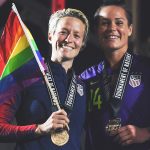
Courtney: Fagan. Balding. Loh. Stoney. Rapinoe. Iconic names in their respective fields and unforgettable role models for a very young, very confused closeted lesbian growing up. These are women that have inspired me for as long as I can remember, and continue to inspire others. Every time someone gets the courage to step forward and be themselves, the world becomes a better place. Each of these women has made life a little easier and certainly better for me – and I’m sure I won’t be the last.
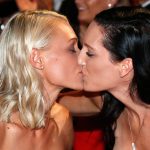
Kate: I’m consistently inspired by Erin Phillips (AFLW). I’ll never forget the infamous kiss between her and her partner Tracy Gahan at the first-ever AFLW best and fairest, when Erin won the award. The kiss was entirely ordinary – an elite sportswoman celebrating with her wife – but it was something never before seen in Australian rules football (given, on the men’s side, we’ve never had a player come out – retired or current!) That Erin was so comfortable and open about her sexuality was very inspiring to me and I’m sure many younger girls and women. Apart from being a visible role-model for LGBTI women and girls everywhere, Erin is also a proud feminist who gave an inspiring speech at the most recent award ceremony (she won again) – where she explained that when she was growing up, people would lament that her father (a famous footballer) didn’t have a son. She said she hoped her second win, alongside her two Premierships as captain and two best-on-ground performances in the grand final would “stick it up them!”
And of course, I’ve been inspired throughout history by so many lesbians who not only battled discrimination because of their sexuality, but because of their race, ethnicity, disability, religion or more. Lesbian experience is multi-faceted and I believe that a truly inclusive lesbian culture adopts an intersectional approach, simultaneously combatting all other forms of prejudice.
Georgina: There weren’t many, growing up, but thinking about the current sports landscape, I know I will inevitably forget someone if I try to list all those I admire. Some have been pioneers, changing sports and society for the better; some I love just for being unashamedly themselves, even when it might be risky. I’m envious of the young girls growing up now who love football as much as I did, and have players like Megan Rapinoe to look up to.
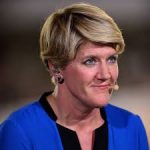
Zoë: Clare Balding has not only been one of my role models for pursuing a career in the horse racing industry, but she’s also been a role model for me in another aspect of my life. She was one of the people I saw myself in when I was dealing with my own sexuality. She was the representation that I needed at that time when there were hardly any other lesbian role models for me when I was younger. Balding still continues to inspire me as she’s a strong advocate of both LGBT+ rights and equal rights. I have great admiration for Casey Stoney, who came out at 2014 at a time when she was captain of England Women. It was momentous, and a courageous decision from her to do so. Seeing her interview reaffirmed to me that I shouldn’t be ashamed of who I am, and that being true to myself is always the best option.
What advice would you give to your younger self?
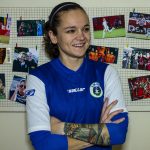
Emma: Don’t be scared to be yourself. It sounds so cliché, but it’s truly something I wish I’d known sooner. When I was in puberty, I tried really hard to be a ‘girly girl’, to fit in with my classmates. I had been out of the closet for a while, but I still never felt like I was truly myself. I thought that if you weren’t a ‘traditionally feminine’ girl, that must mean you were somehow less of a girl. So I tried so hard to change myself. It wasn’t until years later that I realised there are as many different ways to be a girl as there are girls in the world, and none of them are better or worse than the others. When I finally allowed myself to truly be myself and not worry about what other people were expecting me to be, I felt more free and happier than I had been ever before.
Beth: I wish I’d been brave enough to have just been up front and honest about my sexuality from the start. Easy to say now I guess, but I wasted so many years lying to my family and shamefully I became really good at lying. In all honesty, I ended up lying so much that I think I lost who I really was. I was so worried about what other people thought or would think about me being gay, but the crazy thing is that those people are non-existent in my life now. So my advice to my younger self would be… “Beth, everyone is wanting to be the same right now but trust me when I say that different is what everyone will want to be. So just be brave and just be you. And most importantly, I promise you that you will still and always be loved by those who you care about most.”
Courtney: The best piece of advice I could give to my younger self is to not worry so much about figuring out who I am – but enjoy it when I finally do. I was outed in high school and so the road to being comfortable with identifying as a lesbian has been somewhat turbulent, resulting in too much doubt and not enough self-love. I would tell my younger self not to get too caught up in finding a term for how I feel, but just let things happen naturally – there’s absolutely no rush for that sort of thing. Instead, fall in love with life; with family and friends, with education and hobbies; or whatever brings you joy, because the rest will follow.
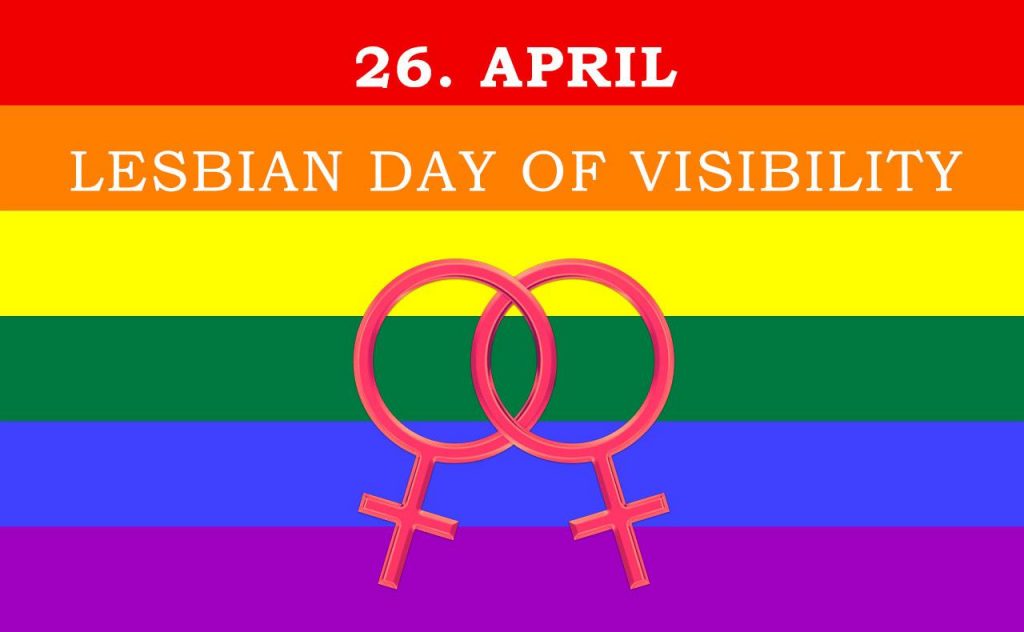
Kate: When I was younger, I played cricket for my state (Victoria), but I was very aware of the stereotype of women’s sport being full of lesbians. As someone who was not only lesbian but a “tomboy” as well, I initially felt ashamed that I lived up to that stereotype, and tried to hide my sexuality. It was something that made me miserable, and I didn’t bond properly with my team-mates as a result. Looking back, I’d say to myself that there’s no shame in being a proud lesbian woman, and continuing in the footsteps of trailblazers who not only challenged the stereotype that only men should excel in sport, but that we ought to be effeminate and straight too. As an adult, it makes total sense to me that the same women who were brave enough to stand up to stereotypes about women in sport would also be brave enough to be true to who they were in terms of both their gender expression and their sexuality. I take that now as inspiration.
Georgina: I’m not sure I feel I’m in a position to offer useful advice to my younger self. I would want her to be less afraid of being attracted to women, though.
Zoë: To my younger self, I’d say to not worry about the reaction that I feared people would have, and to not worry that I wouldn’t be accepted by my peers or family when I came out to them.
A big thank you to Emma, Beth, Courtney, Kate, Georgina, and Zoe, for taking part in this feature.
Learn more about Sports Media LGBT+ – who we are, who we work with, our plans for the rest of 2019, and how you can connect with our welcoming network.


